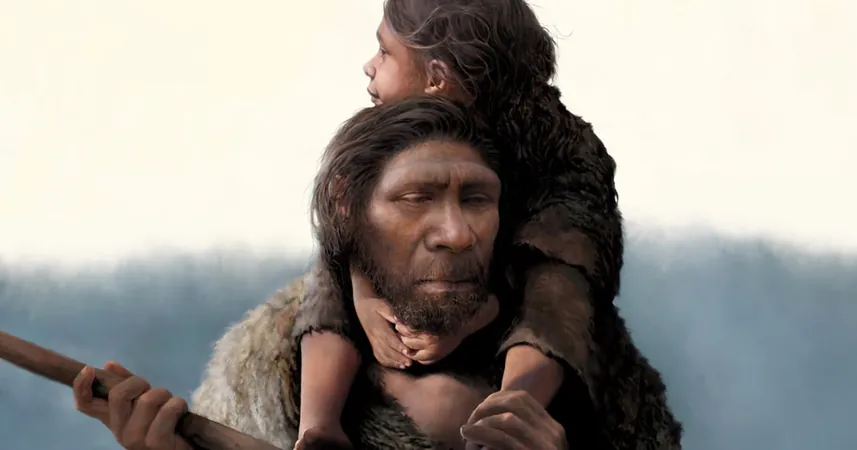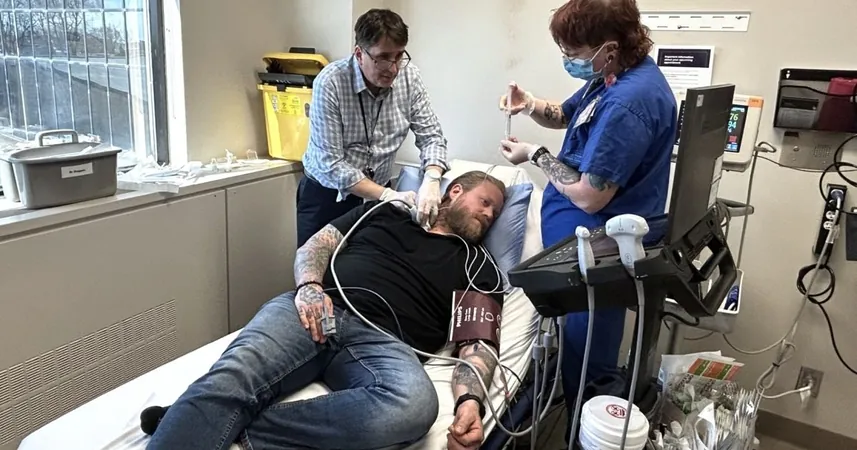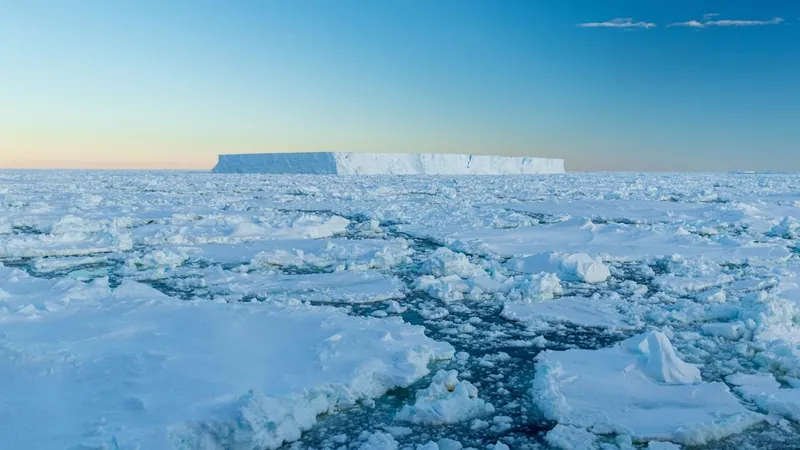
Ancient Denisovans: More Widespread Than We Ever Knew!
2025-04-14
Author: Olivia
Revolutionary Discovery Changes Our Understanding of Denisovans
Recent research has unveiled astonishing news about the Denisovans, an ancient human species that went extinct 25,000 years ago. Contrary to previous beliefs, these early humans roamed a much larger area of the world, as revealed by groundbreaking analysis from a UCD-based archaeologist.
Cracking the Code of Ancient Remains
Meaghan Mackie, a Canadian PhD candidate, has made waves in the scientific community by confirming the presence of Denisovans in Taiwan. By analyzing proteins extracted from ancient skeletal remains, she successfully identified them as belonging to this elusive species. Her work was published alongside an international team in the prestigious journal *Science*.
"My role focused on generating data through mass spectrometry, allowing us to sequence and identify the proteins from the ancient remains," explained Mackie, whose expertise lies in palaeoproteomics.
A Revolutionary Insight: Denisovans in Taiwan!
The discovery of Denisovan remains in Taiwan, situated nearly 2,000 kilometers away from previously known sites in Siberia, marks a significant milestone. This find not only adjusts the geographic range of the Denisovans but also introduces evidence of their existence in warmer, more humid environments.
Mackie stated, "This discovery highlights the impressive adaptability of the Denisovans, a trait we share as humans. Understanding their wide environmental range sheds light on our own evolutionary journey."
Denisovans: More Than Meets the Eye
Genetic research indicates that Denisovans interbred with early Homo sapiens, leaving a trace of their DNA in some modern human populations, particularly in Asia. "Much like how Europeans harbor Neanderthal genes, certain Asians carry remnants of Denisovan ancestry," added Mackie.
What Led to the Denisovans' Extinction?
The reasons behind the extinction of the Denisovans remain a mystery. With just 14 fragments of their remains discovered, various hypotheses exist, ranging from competition with Homo sapiens and Neanderthals to adverse environmental changes, and even diseases.
Mackie emphasizes the lessons to be learned: despite our adaptability and technological advances, the fate of the Denisovans reminds us that unforeseen factors can play a pivotal role in survival — something that modern humans should heed.
The Future of Palaeoproteomics in Understanding Human History
Mackie aims to further her research by studying ancient diets in Ireland during the Neolithic period, utilizing her palaeoproteomics skills to unlock more secrets from our past. This revelation not only broadens our knowledge of Denisovans but also paves the way for future discoveries in human evolution.









 Brasil (PT)
Brasil (PT)
 Canada (EN)
Canada (EN)
 Chile (ES)
Chile (ES)
 Česko (CS)
Česko (CS)
 대한민국 (KO)
대한민국 (KO)
 España (ES)
España (ES)
 France (FR)
France (FR)
 Hong Kong (EN)
Hong Kong (EN)
 Italia (IT)
Italia (IT)
 日本 (JA)
日本 (JA)
 Magyarország (HU)
Magyarország (HU)
 Norge (NO)
Norge (NO)
 Polska (PL)
Polska (PL)
 Schweiz (DE)
Schweiz (DE)
 Singapore (EN)
Singapore (EN)
 Sverige (SV)
Sverige (SV)
 Suomi (FI)
Suomi (FI)
 Türkiye (TR)
Türkiye (TR)
 الإمارات العربية المتحدة (AR)
الإمارات العربية المتحدة (AR)